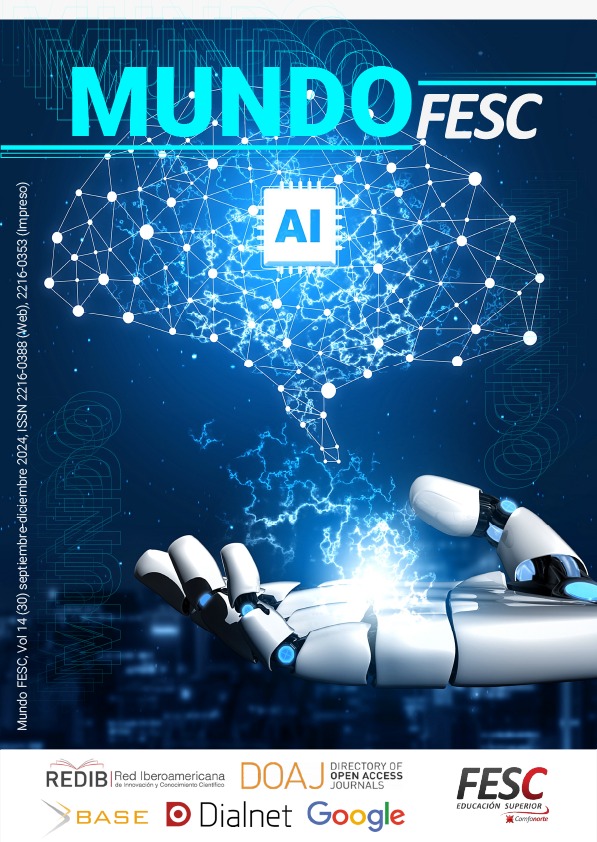Evaluation of the applicability of Industrial Engineering tools to improve Academic and Professional Training at the University of Pamplona.
DOI:
https://doi.org/10.61799/2216-0388.1614Keywords:
Thinking, Business, Learning, Opportunities.Abstract
When faced with the subjects of project engineering,
students of the engineering programs at the University
of Pamplona face discordance in their previous levels
of learning about concepts and objectives related to
entrepreneurship, which are incomplete or outdated.
Depending on the program of origin, this is how it
is prepared.This research work presents an analysis
of the applicability of industrial engineering tools
in the curriculum of the University of Pamplona, in
order to improve the academic and professional
training of undergraduate students.Through a
methodological approach that includes surveys of
students and graduates, interviews with professors
and a comparative analysis with reference programs,
the strengths and weaknesses of the current
curriculum are identified. The results underscore the
need to integrate more practical and entrepreneurial
components to better prepare students for the new
challenges of the labor market.
Downloads
References
[1] G. K, «¿Que es la Ingeniería y para qué sirve?,» [En línea]. Available: https://www.ingenieria.es/ingenieria-industrial/. [Último acceso: 15 Septiembre 2024].
[2] C. Canom, «Tendencias de la Ingeniería Industrial,» Politécnico Gran Colombiano, [En línea]. Available: https://www.poli.edu.co/blog/poliverso/tendencuas-de-la-ingenieria-industrial. [Último acceso: 15 Septiembre 2024].
[3] J. Dewey, «My Pedagogic Creed,» The School Journal, volumen 54, número 3, pp. 77-80, 1897.
[4] J. A. M. A. J. O. M. D. T. Bruce L. Johnson, A Typology of Mixed Methods Sampling Designs in Social Science Research, The Qualitative Report", 2006.
[5] J. W. Creswell, Research Design: Qualitative, Quantitative, and Mixed Methods Approaches, Sage Publications, 2003.
[6] V. L. P. Clark y J. W. Creswell, Research Design: Qualitative, Quantitative, and Mixed Methods Approaches, 2018.
[7] D. A. Kolb, Experiential Learning: Experience as the Source of Learning and Development, Pearson Education, 1984.
[8] H. S. Barrows, Problem-Based Learning: An Approach to Medical Education, Springer, 1980.
[9] P. Drucker, Innovation and Entrepreneurship: Practice and Principles" (Innovación y Emprendimiento: Práctica y Principios), Harper & Row, 1985.
[10] S. Blank y E. Ries, The Lean Startup: How Today’s Entrepreneurs Use Continuous Innovation to Create Radically Successful Businesses", Crown Business, 2011.
[11] S. Sarasvathy, Effectuation: Elements of Entrepreneurial Expertise, Edward Elgar Publishing., 2008. DOI: https://doi.org/10.4337/9781848440197.00024
[12] J. Creswell y V. P. Clark, Designing and Conducting Mixed Methods Research, SAGE Publications, 2007.
Downloads
Published
Issue
Section
License
Copyright (c) 2024 Mundo FESC Journal

This work is licensed under a Creative Commons Attribution-NonCommercial 4.0 International License.






